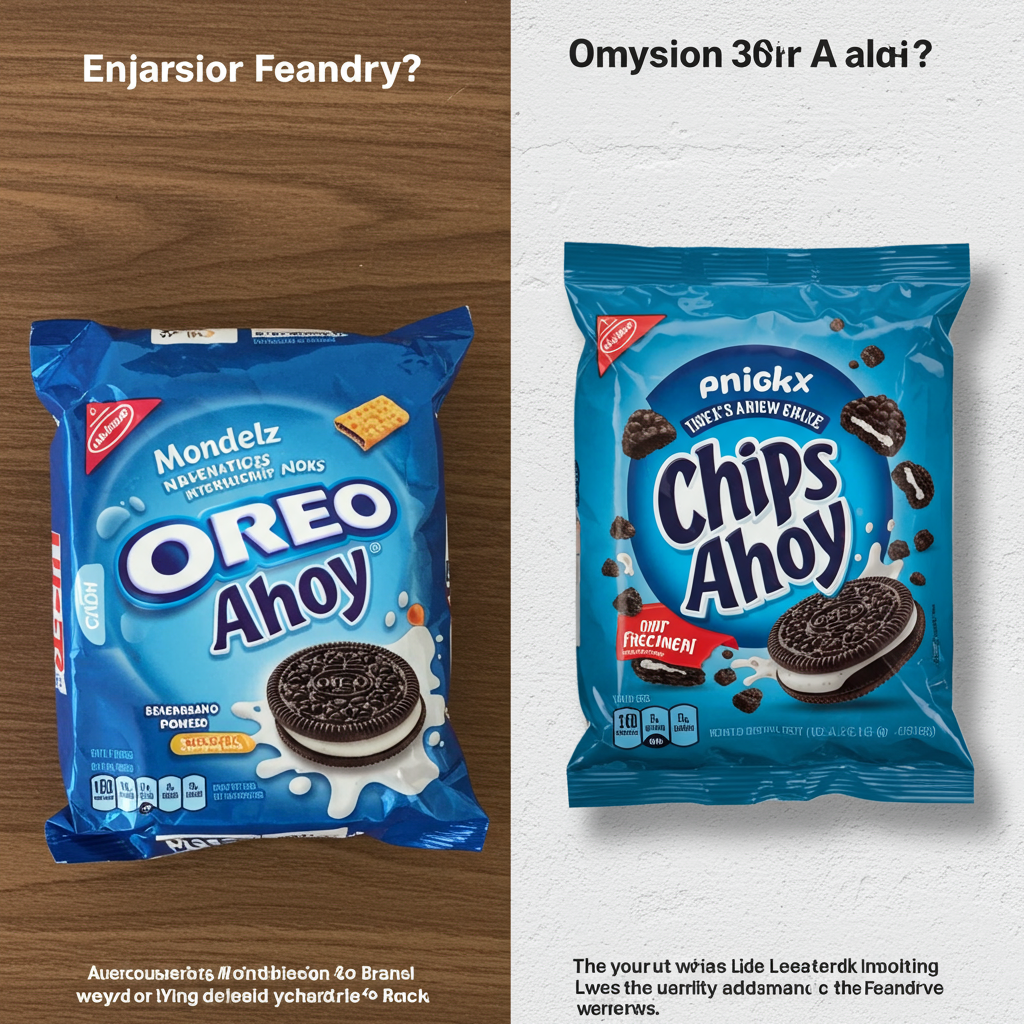Snack Giant Mondelēz Alleges Aldi Copies Packaging to Deceive Shoppers
Mondelēz International, the global food corporation behind beloved snack brands like Oreo, Chips Ahoy!, and Ritz, has filed a lawsuit against the budget supermarket chain Aldi in the United States. The snack giant accuses Aldi of “blatantly” copying the packaging of its popular products to mislead consumers and unfairly benefit from Mondelēz’s established reputation.
Filed in May in an Illinois federal court, the 72-page complaint centers on Aldi’s private-label products, which Mondelēz alleges use “confusingly similar” packaging designs. Mondelēz argues this practice constitutes trademark infringement and unfair competition, allowing Aldi to “ride the coattails” of its brands’ “attraction, fame and prestige.”
The Core Allegations: Confusingly Similar Designs
According to court documents, Mondelēz contends that Aldi’s private-label packaging closely resembles its own across a range of popular cookie and cracker products. This alleged similarity includes mimicking specific colors, fonts, and symbols used on Mondelēz’s packaging.
The lawsuit highlights several examples of products Mondelēz claims are copied:
Oreo cookies vs. Aldi’s Original Chocolate Sandwich Cookies With Vanilla Filling
Chips Ahoy! cookies vs. Aldi’s chocolate chip cookies (allegedly using similar blue and red colors)
Nutter Butter cookies vs. Aldi’s peanut butter creme-filled cookies (noting similar red packaging)
Ritz crackers vs. Aldi’s Golden Round Crackers
Wheat Thins crackers vs. Aldi’s Thin Wheat Original Crackers (allegedly using similar yellow boxes with images of small square crackers)
Other products cited include packaging similar to Nilla Wafers, Teddy Grahams, Belvita biscuits, Tate’s Bake Shop cookies, and Triscuit crackers.
Mondelēz asserts that these “unacceptable copies” are likely to “deceive and confuse consumers,” potentially leading them to believe Aldi’s products are associated with or are the same as Mondelēz’s well-known brands. This alleged confusion and dilution of brand quality, Mondelēz claims, could cause “irreparable harm” to its valuable brands. The lawsuit includes side-by-side photographic comparisons to illustrate these alleged similarities to the court.
Prior Attempts to Resolve and Ongoing Issues
Mondelēz states in its complaint that this is not the first time it has addressed these concerns with Aldi. The company claims it contacted Aldi on “numerous occasions” before filing the lawsuit, objecting to the “confusingly similar packaging” and demanding that Aldi cease the alleged infringement.
The lawsuit acknowledges that Aldi did, at times, respond by discontinuing or altering the packaging of some flagged products. However, Mondelēz alleges that despite these previous actions, Aldi has since “continued its patterns and practice of selling products in packaging which infringes the trade dress of numerous Mondelēz products.”
Aldi’s Business Model and Legal History
Aldi is known globally as a discount supermarket that focuses heavily on selling low-priced private-label products designed to resemble popular national brands. Mondelēz characterizes this business model as one that intentionally mimics the “look and feel of well-known brands.” Aldi operates over 2,500 stores across the US and recently described itself as the fastest-growing grocer in the country, with plans to open hundreds more stores.
This isn’t the first time Aldi has faced legal challenges regarding its product branding and packaging. Earlier this year, Aldi reportedly lost a battle in the UK against cider producer Thatchers, which accused the supermarket of copying its product’s “taste and appearance.” A year prior, an Australian federal court ruled against Aldi over similarities in Baby Bellies snack puff packaging, with the judge describing Aldi’s conduct as “flagrant.” However, Aldi has also won similar cases, including against cosmetic company Moroccanoil Israel in 2018 in the UK and Australia.
Consumer perception of Aldi’s private-label items as cost-effective alternatives, often referred to as “dupes” on social media, adds another layer to the market context surrounding this dispute.
Seeking Damages and an Injunction
Through the lawsuit, Mondelēz is bringing forward claims of trademark infringement, unfair competition, unjust enrichment, and dilution against Aldi US. The company is seeking monetary damages for the alleged harm caused by Aldi’s actions.
Furthermore, Mondelēz is asking the court to issue a permanent injunction. If granted, this court order would prevent Aldi from manufacturing, distributing, and selling the specific products identified in the lawsuit that allegedly infringe on Mondelēz’s trade dress.
As of reporting, Aldi US has not publicly commented on the lawsuit. A spokesperson for Aldi UK clarified that while they share the same ownership, they operate as completely separate businesses from Aldi US and are not involved in this specific legal action.
References
- https://www.bbc.com/news/articles/c5yx70k7v9wo
- https://www.today.com/food/news/mondelez-aldi-packaging-lawsuit-rcna210464
- https://www.usatoday.com/story/money/food/2025/05/30/aldi-sued-packaging-oreo-maker-mondelez-trademark-infringement/83945131007/
- https://www.upi.com/Top_News/US/2025/06/03/mondelez-chips-ahoy-packaging-lawsuit-aldi-grocery/2511748923319/
- https://www.bbc.co.uk/news/articles/c5yx70k7v9wo


